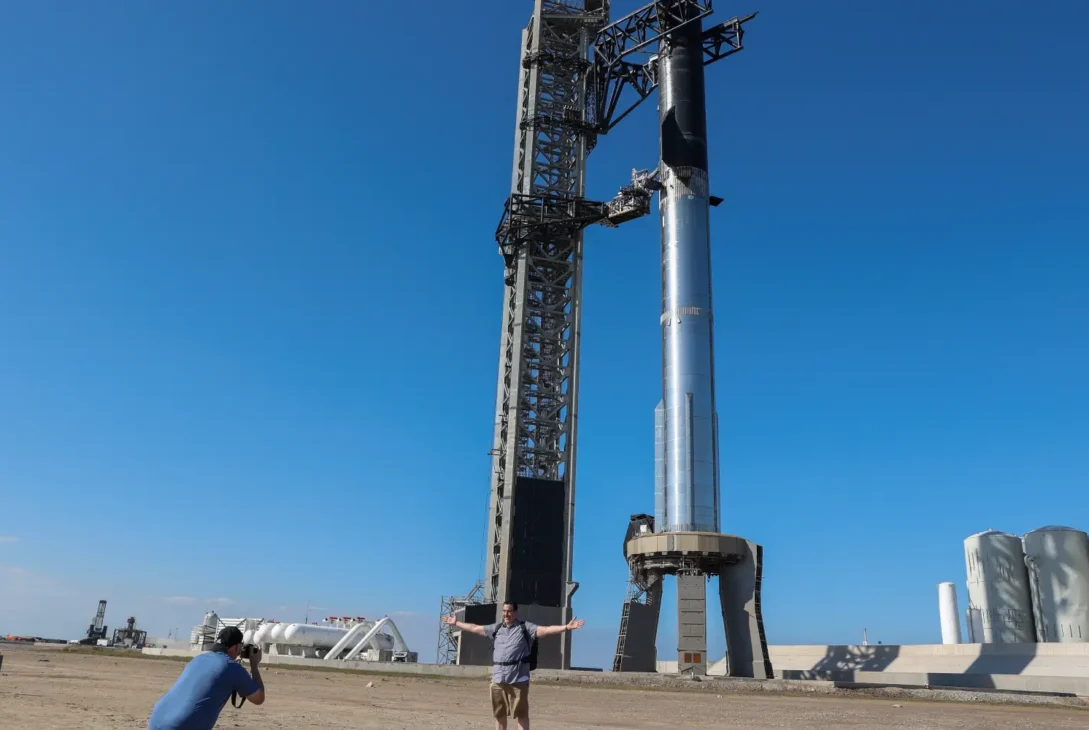Due to a problem at the launch site, Elon Musk’s SpaceX canceled the launch of Starship’s tenth mission from Texas on Sunday. This postponed an effort to reach a number of long-sought development milestones that had been missed because previous tests had ended in early failures.
In preparation for liftoff at 7:35 p.m. ET (2335 GMT), SpaceX’s Starbase rocket facilities were placed on a launch pad with the 70.7-meter-tall Super Heavy booster and its 52-meter-tall Starship upper half. However, SpaceX announced on X that it was standing down about 30 minutes before liftoff in order to give time to resolve a ground systems issue.
Prior to Sunday’s rocket launch, Musk was scheduled to give an update on Starship’s development status, but a placeholder live stream revealed that the event had been canceled. Previous postponements of this kind have been settled in a few days. The next launch attempt for Starship is now scheduled for Monday, August 25, according to SpaceX’s website.
This year, SpaceX’s next-generation rocket development—the backbone of the company’s potent launch business future and Musk’s Mars aspirations has encountered numerous setbacks.
SpaceX has put its test-to-failure development strategy to the test with two Starship testing failures early in flight, another failure in orbit on its ninth flight, and a huge test stand explosion in June that sent debris flying into neighboring Mexican territory.
Also Read:
Adeera of PIF Will Manage The Hotel Portfolio in Qiddiya City
Following Trump’s Remarks, Russia Calls For Prudence in Nuclear “Rhetoric



































